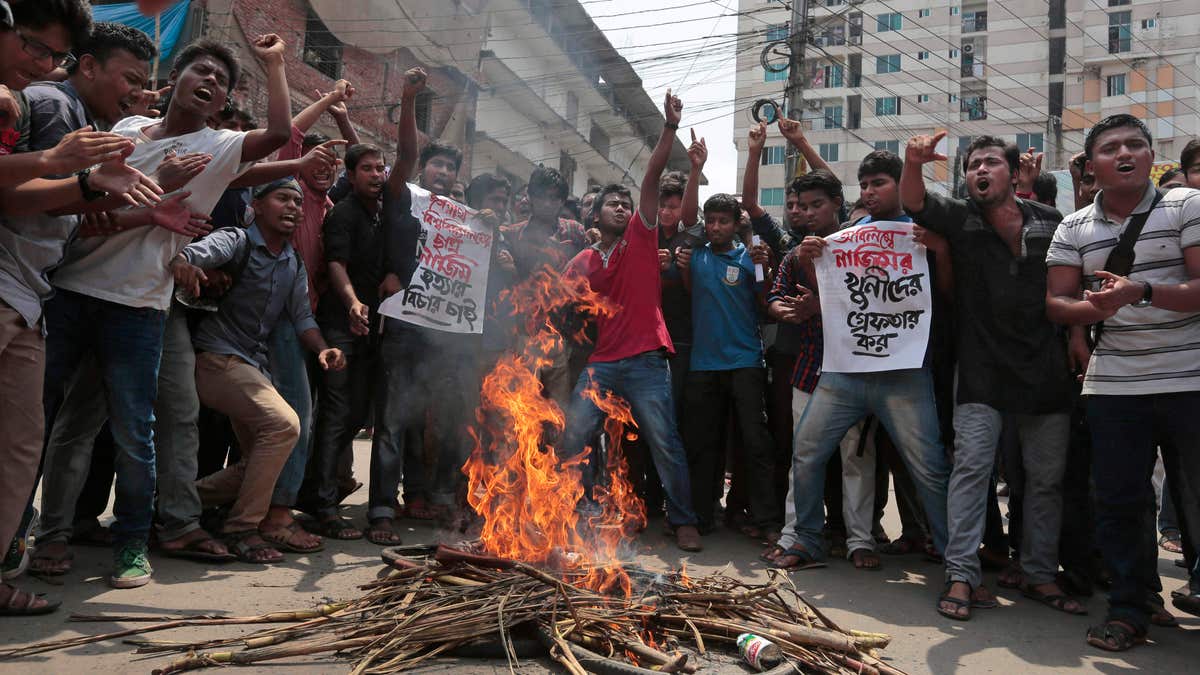
April 7, 2016: Bangladeshi students protest seeking arrest of three motorcycle-riding assailants who hacked student activist Nazimuddin Samad to death as he walked with a friend, in Dhaka, Bangladesh. (AP)
The U.S. said Thursday it’s considering granting refuge to a select number of Bangladesh bloggers who face imminent danger for speaking out against radical Islam after militants killed another outspoken opponent of extremism.
Nazimuddin Samad, 28, was hacked and shot to death by unidentified assailants Wednesday in the streets of Dhaka, the capital of Bangladesh. The attackers allegedly shouted “Allahu Akbar” and escaped by motorcycle.
Five secular bloggers and publishers were killed last year in similar fashion. The murders have heightened concerns that extremists are gaining a foothold in Bangladesh, a Muslim country with traditions of secularism and tolerance, and that authorities are failing to provide any kind of protection.
Karin Deutsch Karlekar of PEN American, a U.S.-based human rights group, has called on the U.S. to offer “humanitarian parole” for Bangladeshi writers targeted by extremists for secular beliefs. She reiterated that call to the U.S. and other countries Thursday, saying that Samad’s killing “is a cruel illustration of the costs of inaction.”
State Department spokesman Mark Toner strongly condemned the "barbaric murder" of Samad and told reporters the U.S. offers "unwavering support to the Bangladeshi people in their struggle against violent extremism."
He said that humanitarian parole for a select number of bloggers who continue to be under "imminent danger" is one option under consideration, but referred questions on it to the Homeland Security Department.
Humanitarian parole is used sparingly to bring a person into the United States for a temporary period of time due to a compelling emergency.
No group has claimed responsibility for the killing of Samad, a supporter of Prime Minister Sheikh Hasina's secular Awami League party.
Authorities in Bangladesh believe Samad was targeted for his outspoken atheism and for supporting capital punishment for war crimes during the country’s fight for independence against Pakistan in 1971.
Hasina's government set up special tribunals to try war crimes cases, including against senior leaders of an opposition, Islamist party. Hasina's government has accused the opposition of supporting religious radicals it blames for the attacks on bloggers, minority Shiites, Christians and foreigners.
Some of the attacks were claimed by the Islamic State, but the government dismisses those claims and says the Sunni extremist group has no presence in the country.
The Associated Press contributed to this report.
